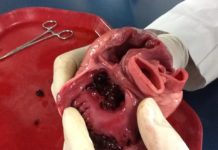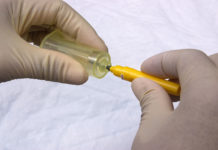
The culprit is lone error in one gene, but researchers find many potential therapeutic targets
While Alzheimer’s disease affects senior people, frontotemporal dementia usually attacks the young ones. It accounts for an estimated 20 percent of all cases of early-onset dementia.
Patients with the illness typically begin to suffer memory loss by their early 60s, but it can affect some people as young as their 40s, and there are no effective treatments.
To better understand this condition, an international team of researchers, led by Washington University School of Medicine in St. Louis started working on it. The team has found that a lone mutation in a single gene that causes an inherited form of frontotemporal dementia makes it harder for neurons in the brain to communicate with one another, leading to neurodegeneration.
The new findings zero in on the MAPT gene. That gene makes a protein called tau, which has also been associated with cognitive decline in Alzheimer’s disease.
The new findings zero in on the MAPT gene. That gene makes a protein called tau, which has also been associated with cognitive decline in Alzheimer’s disease
Identifying the downstream effects of the mutation could help identify new treatment targets for frontotemporal dementia, Alzheimer’s disease and other tau-related illnesses, including Parkinson’s disease.
The study has been published Dec. 13 in the journal Translational Psychiatry.
“We have demonstrated that we can capture changes in human cells cultured in a dish that also are appearing in the brains of individuals suffering with frontotemporal dementia,” said Celeste M. Karch, PhD, an assistant professor of psychiatry and one of the study’s senior authors. “Importantly, the approach we are using allows us to zero in on genes and pathways that are altered in cells and in patient brains that may be influenced by compounds already approved by the FDA. We want to evaluate whether any of these compounds could prevent memory loss, or even restore memory, in people with frontotemporal dementia by improving the function of these pathways that have been disrupted.”
Karch, with co-senior author Carlos Cruchaga, PhD, an associate professor of psychiatry, and the other co-senior author, Oscar Harari, PhD, an assistant professor of psychiatry, gathered skin samples from patients with frontotemporal dementia who were known to have a specific mutation in the MAPT gene.












